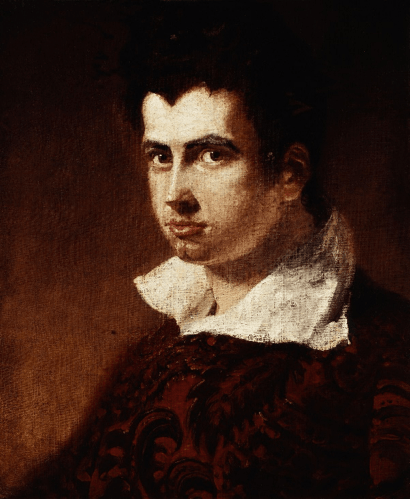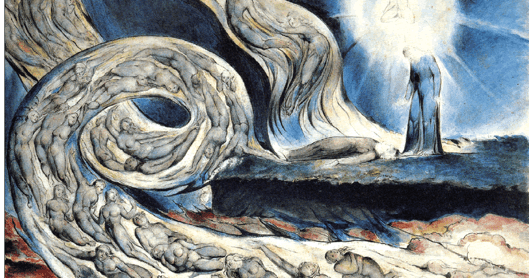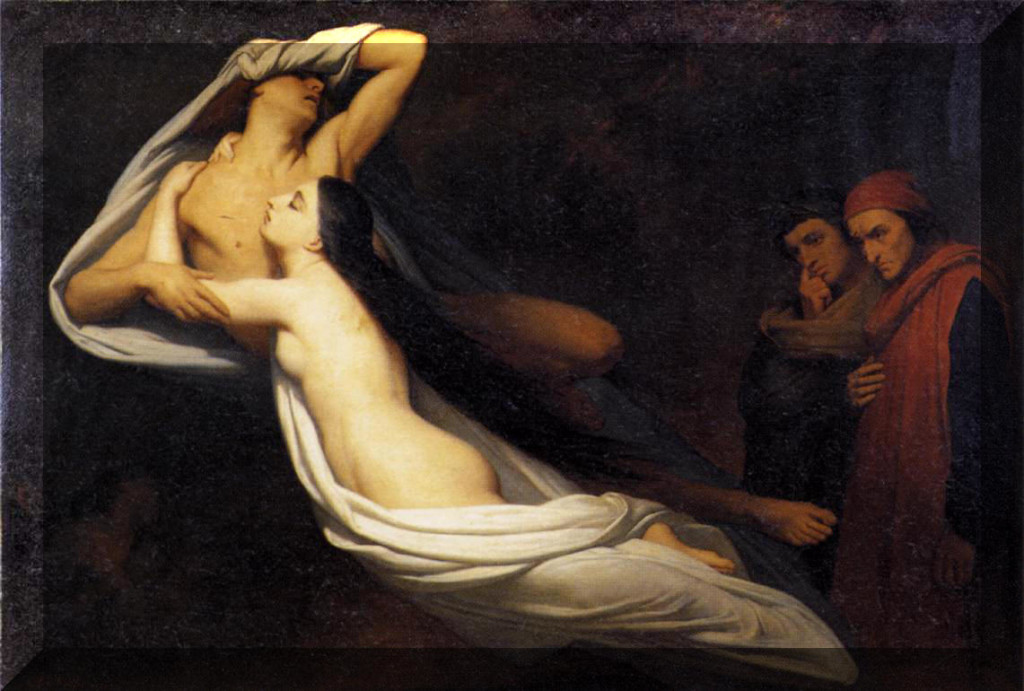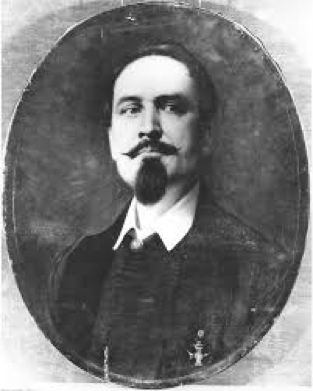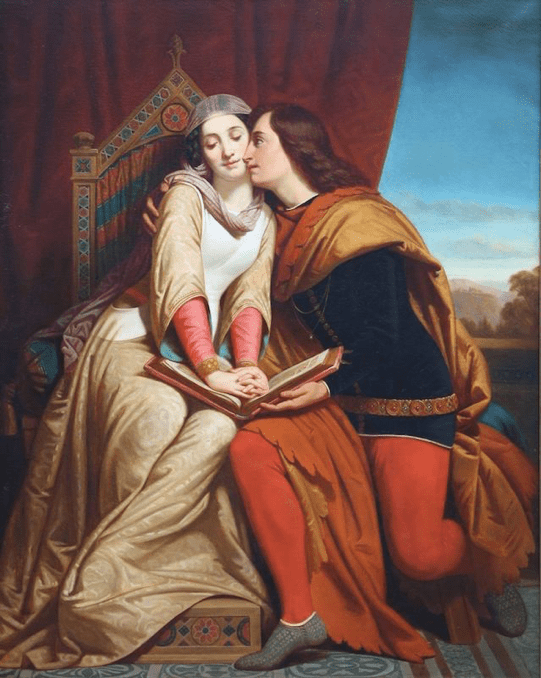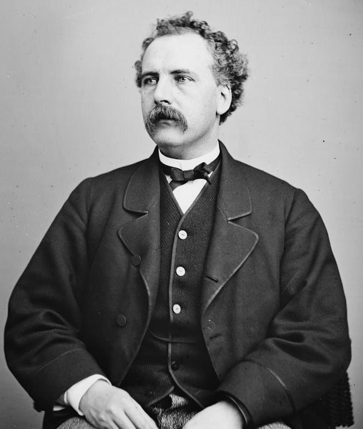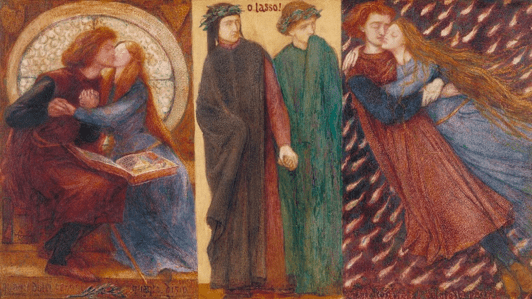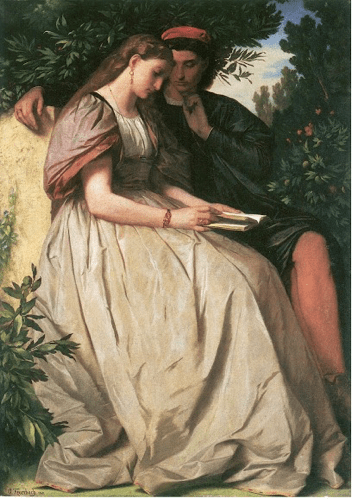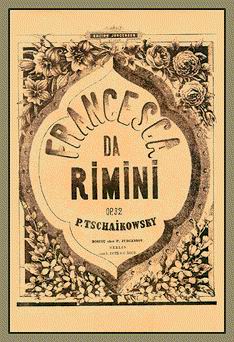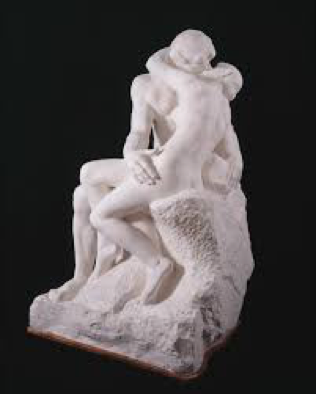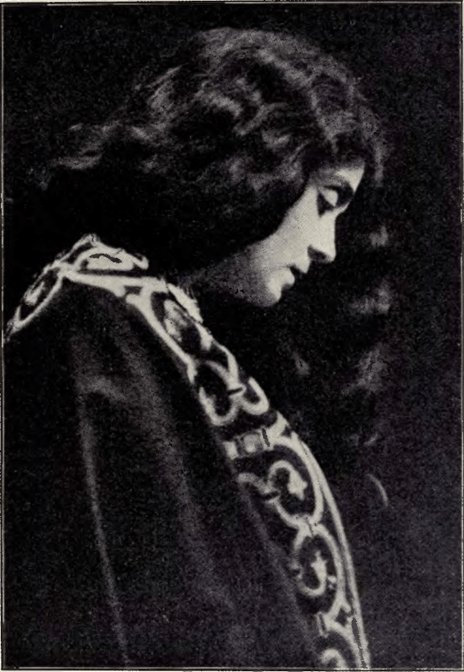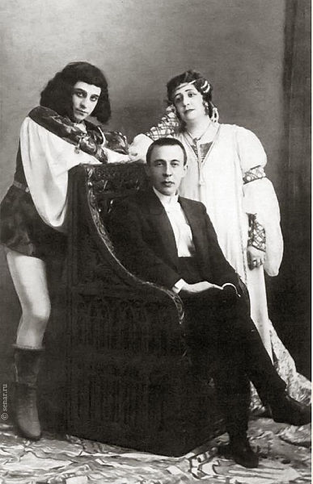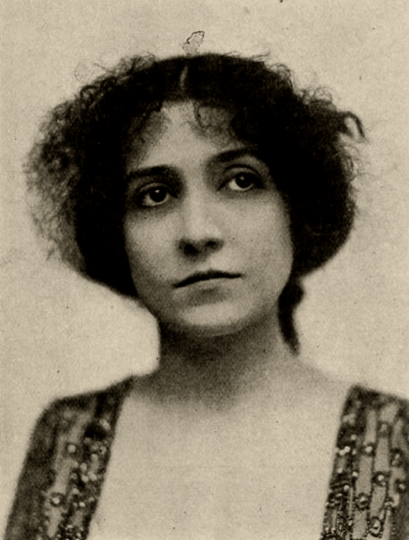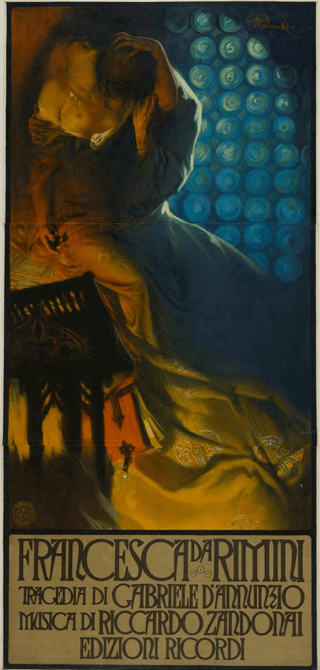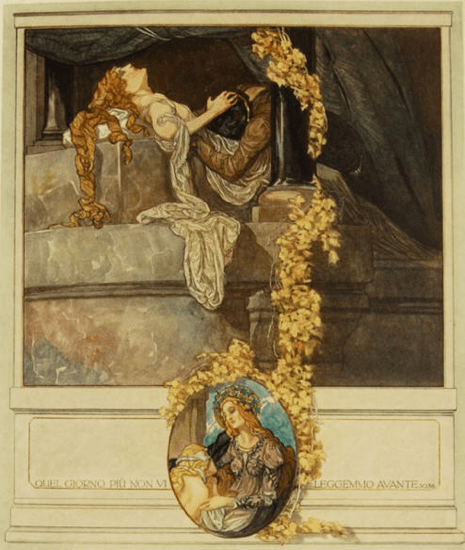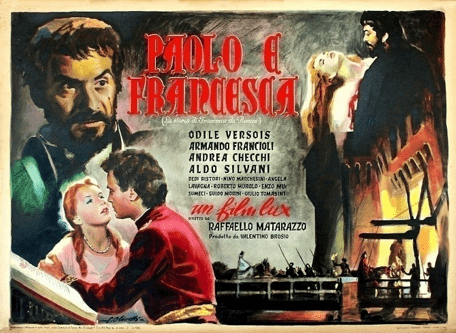Welcome
Discover the Divine Comedy
On the occasion of the 700th anniversary of Dante Alighieri’s passing, the Ministry of Foreign Affairs and Intenational Cooperation invites you to explore the Canto V of the Inferno of the Divine Comedy. Listen to the tercets, discover the figures who inspired the poet and how Paolo and Francesca’s story influenced authors all over the world.
Verses 1-24: Minos, judge of the damned
From the first circle I descended thus
Down to the second, which, a lesser space
Embracing, so much more of grief contains,
Provoking bitter moans.
There Minos stands,
Grinning with ghastly feature: he, of all
Who enter, strict examining the crimes,
Gives sentence, and dismisses them beneath,
According as he foldeth him around:
For when before him comes the ill-fated soul,
It all confesses; and that judge severe
Of sins, considering what place in Hell
Suits the transgression, with his tail so oft
Himself encircles, as degrees beneath
He dooms it to descend.
Before him stand
Always a numerous throng; and in his turn
Each one to judgment passing, speaks, and hears
His fate, thence downward to his dwelling hurl’d.
“O thou! who to this residence of woe
Approachest!” when he saw me coming, cried
Minos, relinquishing his dread employ,
“Look how thou enter here; beware in whom
Thou place thy trust; let not the entrance broad
Deceive thee to thy harm.” To him my guide:
“Wherefore exclaimest?
Hinder not his way
By destiny appointed; so ’tis will’d,
Where will and power are one. Ask thou no more.”
Verses 25-51: The infernal storm
Now ’gin the rueful wailings to be heard.
Now am I come where many a plaining voice
Smites on mine ear.
Into a place I came
Where light was silent all. Bellowing there groan’d
A noise, as of a sea in tempest torn
By warring winds.
The stormy blast of Hell
With restless fury drives the spirits on,
Whirl’d round and dash’d amain with sore annoy.
When they arrive before the ruinous sweep,
There shrieks are heard, there lamentations, moans,
And blasphemies ’gainst the good Power in Heaven.
I understood, that to this torment sad
The carnal sinners are condemn’d, in whom
Reason by lust is sway’d.
As, in large troops
And multitudinous, when winter reigns,
The starlings on their wings are borne abroad;
So bears the tyrannous gust those evil souls.
On this side and on that, above, below,
It drives them: hope of rest to solace them
Is none, nor e’en of milder pang.
As cranes,
Chanting their dolorous notes, traverse the sky,
Stretch’d out in long array; so I beheld
Spirits, who came loud wailing, hurried on
By their dire doom. Then I: “Instructor! who
Are these, by the black air so scourged?”
Verses 52-72: The flock of lustful souls
“The first
’Mong those, of whom thou question’st,” he replied,
“O’er many tongues was empress.
She in vice
Of luxury was so shameless, that she made
Liking be lawful by promulged decree,
To clear the blame she had herself incurr’d.
This is Semiramis, of whom ’tis writ,
That she succeeded Ninus her espoused;
And held the land, which now the Soldan rules.
The next in amorous fury slew herself,
And to Sichæus’ ashes broke her faith:
Then follows Cleopatra, lustful queen.”
There mark’d I Helen, for whose sake so long
The time was fraught with evil; there the great
Achilles, who with love fought to the end.
Paris I saw, and Tristan; and beside,
A thousand more he show’d me, and by name
Pointed them out, whom love bereaved of life.
When I had heard my sage instructor name
Those dames and knights of antique days, overpowered
By pity, well-nigh in amaze my mind
Was lost;
Key Characters

Semiramide
Verses 52-60
“The first
’Mong those, of whom thou question’st,” he replied,
“O’er many tongues was empress.
She in vice
Of luxury was so shameless, that she made
Liking be lawful by promulged decree,
To clear the blame she had herself incurr’d.
This is Semiramis, of whom ’tis writ,
That she succeeded Ninus her espoused;
And held the land, which now the Soldan rules.

Didone
Verses 61-62
The next in amorous fury slew herself,
And to Sichæus’ ashes broke her faith

Cleopatra
Verse 63
Then follows Cleopatra, lustful queen.”

Elena
Verses 64-67
There mark’d I Helen, for whose sake so long
The time was fraught with evil; there the great
Achilles, who with love fought to the end.
Paris I saw, and Tristan; and beside,

Tristano
Verse 67
Paris I saw, and Tristan; and beside,
Verses 73-142: Paolo and Francesca
and I began: “Bard! Willingly
I would address those two together coming,
Which seem so light before the wind.”
He thus:
“Note thou, when nearer they to us approach.
Then by that love which carries them along,
Entreat; and they will come.”
Soon as the wind
Sway’d them towards us, I thus framed my speech:
“O wearied spirits! come, and hold discourse
With us, if by none else restrain’d."
As doves
By fond desire invited, on wide wings
And firm, to their sweet nest returning home,
Cleave the air, wafted by their will along;
Thus issued, from that troop where Dido ranks,
They, through the ill air speeding: with such force
My cry prevail’d, by strong affection urged.
“O gracious creature and benign! who go’st
Visiting, through this element obscure,
Us, who the world with bloody stain imbrued;
If, for a friend, the King of all, we own’d,
Our prayer to him should for thy peace arise,
Since thou hast pity on our evil plight.
Of whatsoe’er to hear or to discourse
It pleases thee, that will we hear, of that
Freely with thee discourse, while e’er the wind,
As now, is mute.
The land, that gave me birth,
Is situate on the coast, where Po descends
To rest in ocean with his sequent streams.
“Love, that in gentle heart is quickly learnt,
Entangled him by that fair form, from me
Ta’en in such cruel sort, as grieves me still:
Love, that denial takes from none beloved,
Caught me with pleasing him so passing well,
That, as thou seest, he yet deserts me not.
Love brought us to one death: Caïna waits
The soul, who spilt our life.” Such were their words;
At hearing which, downward I bent my looks,
And held them there so long, that the bard cried:
“What art thou pondering?”
I in answer thus:
“Alas! by what sweet thoughts, what fond desire
Must they at length to that ill pass have reach’d!”
Then turning, I to them my speech address’d,
And thus began: “Francesca! your sad fate
Even to tears my grief and pity moves.
But tell me; in the time of your sweet sighs,
By what, and how Love granted, that ye knew
Your yet uncertain wishes?”
She replied:
“No greater grief than to remember days
Of joy, when misery is at hand. That kens
Thy learn’d instructor.
Yet so eagerly
If thou art bent to know the primal root,
From whence our love gat being, I will do
As one, who weeps and tells his tale.
One day,
For our delight we read of Lancelot,
How him love thrall’d. Alone we were, and no
Suspicion near us.
Oft-times by that reading
Our eyes were drawn together, and the hue
Fled from our alter’d cheek. But at one point
Alone we fell.
When of that smile we read,
The wished smile so raptorously kiss’d
By one so deep in love, then he, who ne’er
From me shall separate,
at once my lips
All trembling kiss’d. The book and writer both
Were love’s purveyors. In its leaves that day
We read no more.”
While thus one spirit spake,
The other wail’d so sorely, that heart-struck
I, through compassion fainting, seem’d not far
From death,
and like a corse fell to the ground.
Influences of Paolo and Francesca in the world
Timeline and Map
-
1373
Giovanni Boccaccio (1313-1375), Expositions over Dante's "Comedy"
-
1785
Johann Heinrich Fussli (1741-1825), Paolo and Francesca caught by Gianciotto
-
1802
Bertel Thorvaldsen (1770-1844), Paolo Malatesta and Francesca da Rimini
-
1806
Gian Giacomo Machiavelli (1766-1811), Amor ch’a nullo amato amar perdona
-
1812
Marie-Philippe Coupin de La Couperie (1773-1851), The Tragic Love of Francesca da Rimini
-
1816
James Henry Leigh Hunt (1784-1859), The story of Rimini
-
1824
William Blake (1757-1827), The Circle of the Lustful: Francesca da Rimini
-
1835
Ary Scheffer (1795-1858), Francesca and Paolo before Dante and Virgilio
-
1837
William Dyce (1806-1864), Francesca da Rimini
-
1838
Krystyn Ostrowski (1811-1882), Françoise de Rimini
-
1841
Henri Decaisne (1799-1852), Francesca da Rimini
-
1842
Miguel Canè (1851-1905), Francesca da Rimini
-
1853
George Henry Boker (1823-1890), Francesca da Rimini, a tragedy in five acts
-
1854
Dante Charles Gabriel Rossetti (1828-1882), Paolo and Francesca
-
1864
Anselm Feuerbach (1829-1880), Paolo and Francesca
-
1876
Pëtr Il'ič Čajkovskij (1840-1893), Francesca da Rimini
-
1886
Auguste Rodin (1840-1917),
The Kiss -
1901
Gabriele D’Annunzio (1863-1938), Francesca da Rimini
-
1906
Sergej Rachmaninov (1873-1943), Francesca da Rimini
-
1908
James Stuart Blackton (1875-1941), The Two Brothers or Francesca da Rimini
-
1914
Riccardo Zandonai (1883-1944), Francesca da Rimini
-
1921
Franz Von Bayros (1866-1924; pseudonym Choisy Le Conin), Francesca da Rimini
-
1949
Raffaello Matarazzo (1909-1966), Paolo and Francesca
-
1981
Jorge Luis Borges (1899-1986),
Inferno V, 129
Credits
DIRECTORATE GENERAL FOR CULTURAL AND ECONOMIC PROMOTION AND INNOVATION Office VIII
Texts by Bianca Garavelli
English version by Donatella Baldini and Edoardo Crisafulli
French version by the Italian Institute of Culture of Lyon
Spanish version by Carlos Patrignani, the Italian Institute of Culture of Madrid
Portuguese version by the Italian Institute of Culture of São Paulo
Website and app development by MTM Reality www.mtmreality.com – info@mtmproject.com
















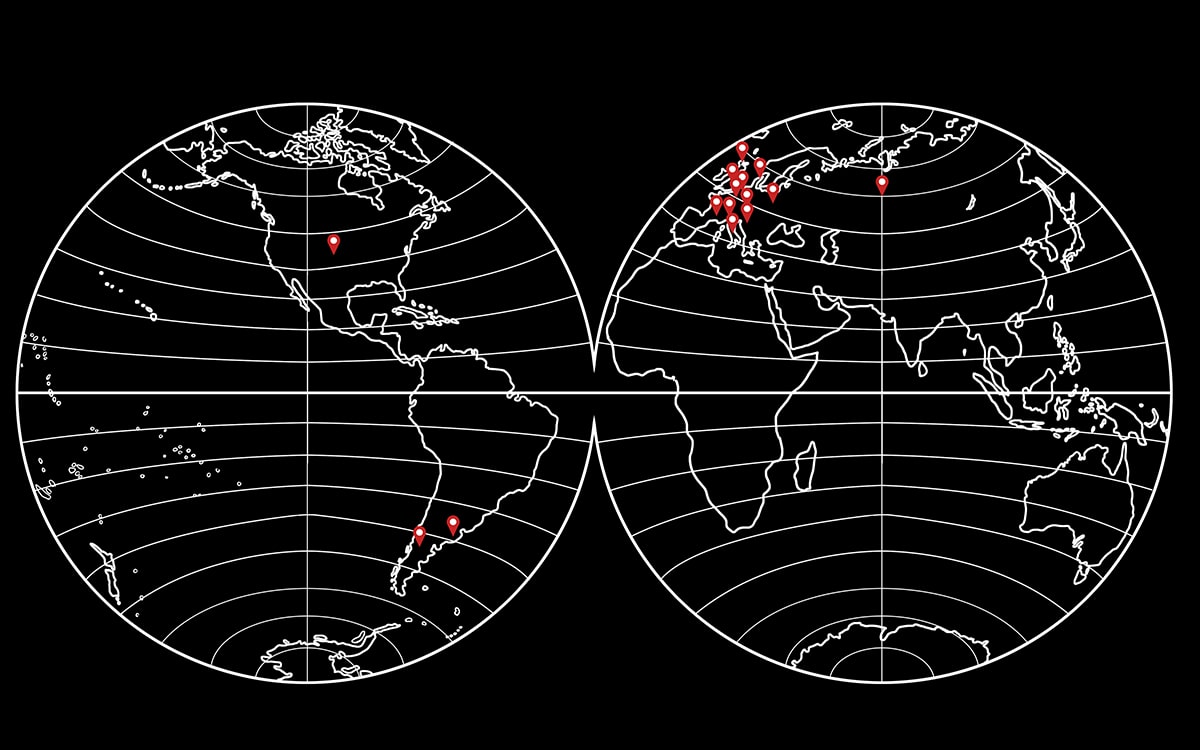
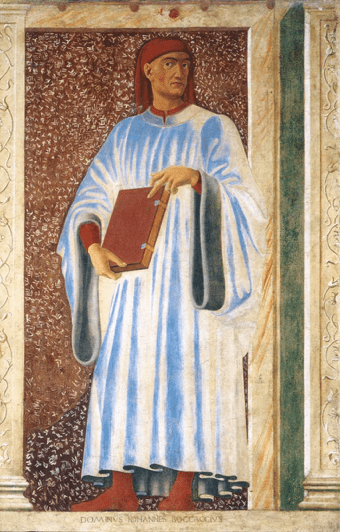 ">
">

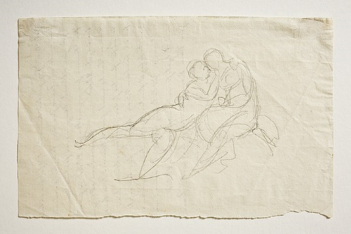
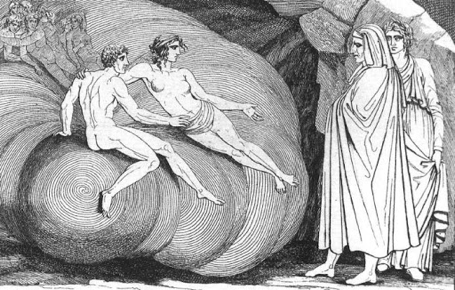
 Marie-Philippe Coupin de La Couperie (1773-1851), The Tragic Love of Francesca da Rimini ">
Marie-Philippe Coupin de La Couperie (1773-1851), The Tragic Love of Francesca da Rimini ">
